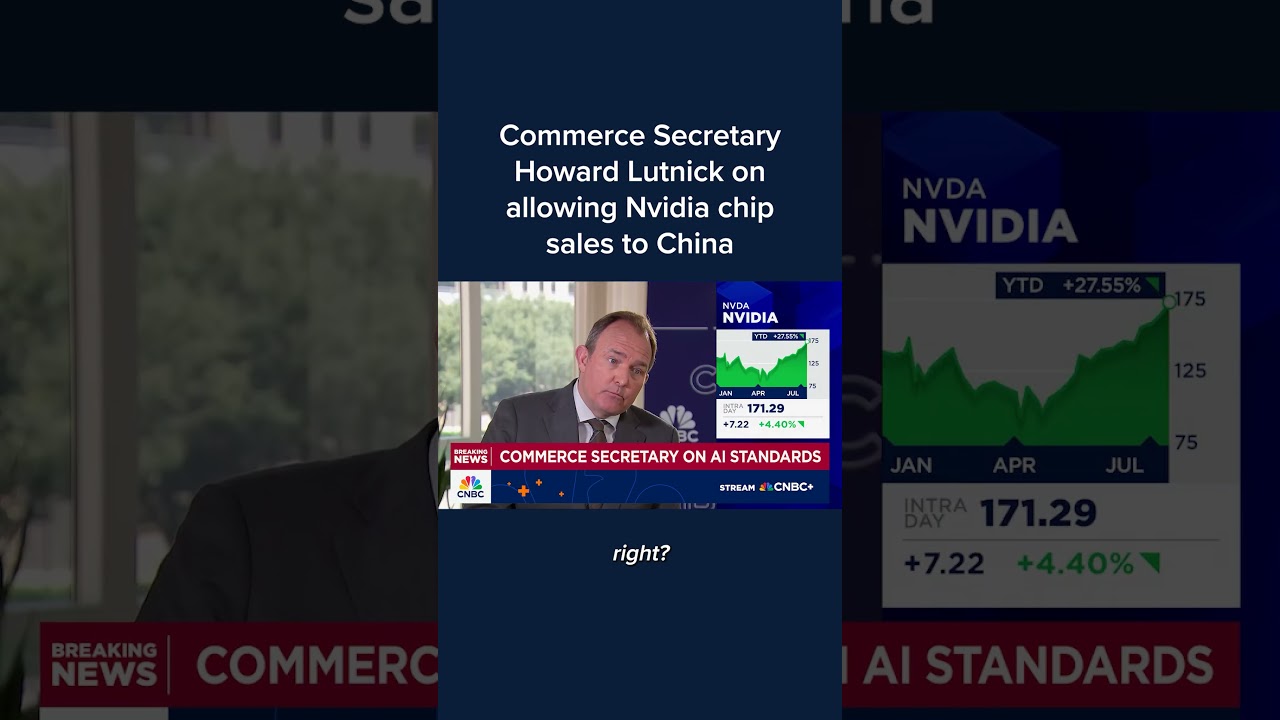Commerce Secretary Howard Lutnick explained that the Biden administration’s decision to allow Nvidia to sell older generation chips to China aims to maintain U.S. technological leadership by keeping China dependent on American technology without providing access to the latest advanced hardware. He emphasized that this strategy supports global developer engagement with Nvidia’s platforms, sustaining U.S. influence in the semiconductor industry while positively impacting the broader tech market.
Commerce Secretary Howard Lutnick discussed the recent decision by the Biden administration to allow Nvidia to sell certain older generation chips to China. He clarified that this is not a sudden change of heart, as the administration had permitted China to purchase these chips last year. However, there was a temporary hold on sales, which was later lifted in conjunction with a deal involving Chinese magnet manufacturers. The chips in question are not the latest models but rather older versions, specifically the fourth-tier chips below Nvidia’s newest offerings like the Blackwell, H200, and H100.
Lutnick emphasized the strategic reasoning behind this selective sales approach. The U.S. aims to maintain China’s reliance on American technology without giving away the most advanced hardware. By allowing sales of the fourth-best chips, the U.S. keeps China engaged with its technology stack while safeguarding its cutting-edge innovations. This balance is crucial to maintaining technological leadership and economic leverage in the semiconductor industry.
The market responded positively to this news, with Nvidia’s stock rising by about 4.5%. Given Nvidia’s massive market capitalization, which exceeds four trillion dollars, its stock performance significantly influences broader market indices like the NASDAQ. Lutnick noted that Nvidia’s success tends to lift other technology stocks, reflecting the company’s central role in the tech ecosystem.
Addressing concerns about why the U.S. would provide China access to any chips, Lutnick explained that China is already capable of developing its own semiconductor technology. The goal is to stay one step ahead by ensuring that Chinese developers remain dependent on American technology platforms. This dependency is seen as a strategic advantage, as developers worldwide using Nvidia’s technology help maintain U.S. dominance in the field.
Finally, Lutnick highlighted the importance of the developer community in driving technological progress. By keeping Chinese developers engaged with Nvidia’s technology, the U.S. ensures continued influence over global tech development. He also mentioned that former President Donald Trump is aware of these dynamics and that the current platform model involving Nvidia has been designed with these strategic considerations in mind.
